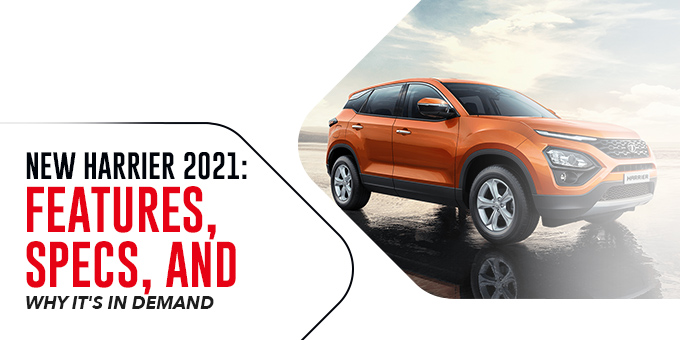The Toyota Corolla has built an almost legendary reputation in the compact car segment. For decades, drivers around the world have praised its reliability, affordability, and, most importantly, fuel efficiency. However, in a world where manufacturers often advertise best-case scenario numbers, one can’t help but wonder—is the Toyota Corolla fuel consumption really as efficient as advertised? In this post, we’ll dive deep into the numbers, compare real-world experiences, and analyze whether the Corolla lives up to the hype.
Understanding Fuel Consumption: What Do the Numbers Mean?
The Basics of MPG and Fuel Efficiency
Before we get into the specifics of Toyota Corolla or the Toyota Land Cruiser 2005 fuel consumption, it’s crucial to understand what fuel consumption figures actually represent. Typically, manufacturers use MPG (Miles Per Gallon) to measure a vehicle’s fuel efficiency. In other parts of the world, this may be shown in liters per 100 kilometers (L/100km).
The higher the MPG, the farther your car can travel on a single gallon of fuel. Conversely, the lower the liters per 100km, the less fuel the car uses over a specific distance. However, these numbers are usually calculated under controlled conditions, which may not reflect your daily driving experience.
Toyota Corolla’s Official Fuel Consumption Ratings
The Advertised Figures
Toyota, like many manufacturers, provides fuel consumption estimates based on laboratory testing. For the Toyota Corolla sedan (2024 model year), the advertised fuel economy is as follows:
- City Driving: 31 MPG
- Highway Driving: 40 MPG
- Combined Driving: 34-35 MPG
If you opt for the Toyota Corolla Hybrid, the numbers get even more impressive:
- City Driving: 53 MPG
- Highway Driving: 46 MPG
- Combined Driving: 50 MPG
These figures are undeniably attractive, especially for commuters and drivers looking to save at the pump. But do they reflect real-world Toyota Corolla fuel consumption?
Real-World Toyota Corolla Fuel Consumption
The Numbers Outside the Lab
Here’s where things get interesting. While Toyota Corolla MPG numbers sound excellent on paper, various factors influence how they play out in real life.
Many drivers report slightly lower numbers than advertised, especially in city driving conditions. Real-world Corolla owners typically see:
- Non-Hybrid Corolla: 28-33 MPG combined
- Hybrid Corolla: 46-49 MPG combined
While these figures are still respectable, they do reveal a small gap between lab tests and actual driving experiences. Why does this discrepancy exist? Several reasons:
- Driving Style: Aggressive acceleration, hard braking, and excessive idling all reduce fuel efficiency.
- Traffic Conditions: Stop-and-go city traffic consumes more fuel than steady highway driving.
- Weather: Cold temperatures and the use of air conditioning or heating systems can lower MPG.
- Load: Carrying passengers, heavy cargo, or even roof racks can increase fuel consumption.
- Tire Pressure & Maintenance: Poorly maintained vehicles or under-inflated tires impact fuel efficiency negatively.
So, while Toyota Corolla's fuel efficiency is commendable, it may not always match the perfect conditions of official tests.
Factors That Enhance or Hinder Toyota Corolla Fuel Efficiency
What Impacts Your MPG?
Although the Toyota Corolla fuel consumption ratings offer a useful baseline, understanding the elements that can alter these numbers helps set realistic expectations.
Engine Type:
The Corolla offers different engine options. The 1.8L and 2.0L gas engines vary in power output and fuel consumption. Generally, the 1.8L engine delivers slightly better MPG, but the difference isn't drastic.
Transmission:
Models equipped with the CVT (Continuously Variable Transmission) tend to offer better fuel efficiency compared to manual transmission variants.
Hybrid Technology:
The Corolla Hybrid leverages regenerative braking and electric assistance, dramatically improving MPG figures, especially in city driving.
Driving Environment:
Urban driving with frequent stops reduces fuel efficiency. On the other hand, highway cruising at consistent speeds allows the Corolla to perform closer to advertised MPG numbers.
Driver Behavior:
Smooth acceleration, moderate speeds, and proper vehicle maintenance are essential for achieving optimal Toyota Corolla fuel consumption.
Is the Toyota Corolla Fuel Consumption Better Than Its Competitors?
How It Stacks Up
When comparing the Toyota Corolla to other compact sedans like the Honda Civic, Hyundai Elantra, or Mazda3, the Corolla consistently ranks among the most fuel-efficient in its class.
For example:
- Honda Civic (2024): 31 MPG city / 40 MPG highway (Non-Hybrid)
- Hyundai Elantra (2024): 33 MPG city / 42 MPG highway (Non-Hybrid)
- Mazda3 (2024): 28 MPG city / 37 MPG highway
The Corolla sits comfortably in this range, and when you factor in the Hybrid version, it leaps ahead with 50+ MPG, making it a leader in Toyota Corolla fuel efficiency.
How to Maximize Your Toyota Corolla’s Fuel Efficiency
If you're keen on squeezing every possible mile out of your Corolla, here are some practical, actionable tips:
Maintain Tire Pressure
Properly inflated tires reduce rolling resistance and improve fuel economy.
Drive Smoothly
Avoid rapid acceleration and harsh braking. Instead, anticipate stops and coast when possible.
Use Eco Mode
That is why many modern Corollas come with an Eco driving mode that adjusts throttle response and air conditioning to optimize fuel consumption.
Reduce Weight
Remove unnecessary items from your vehicle to lighten the load.
Keep Up with Maintenance
Additionally, regular oil changes, air filter replacements, and engine tune-ups can significantly enhance Toyota Corolla's fuel consumption.
Limit Idling
Turn off your engine if you expect to be stationary for more than a minute or two.
Conclusion: Is the Toyota Corolla Fuel Consumption as Good as It Seems?
So, is the Toyota Corolla's fuel consumption as efficient as advertised? The answer is mostly yes. While real-world driving may yield slightly lower MPG numbers than laboratory conditions suggest, the Corolla remains one of the most fuel-efficient compact sedans available today.
Its combination of Toyota Corolla MPG ratings, hybrid technology options, and real-world durability ensures that most drivers will find their fuel costs noticeably lower compared to similar vehicles. Moreover, the Corolla’s ability to maintain respectable fuel economy even when conditions aren’t ideal adds to its overall value.
That said, no fuel consumption figure is set in stone. How efficiently your Corolla runs depends heavily on your driving habits, maintenance routines, and even the weather. That is why if you’re looking for a compact car that consistently delivers above-average fuel efficiency, the Toyota Corolla is undeniably a smart, economical choice.




